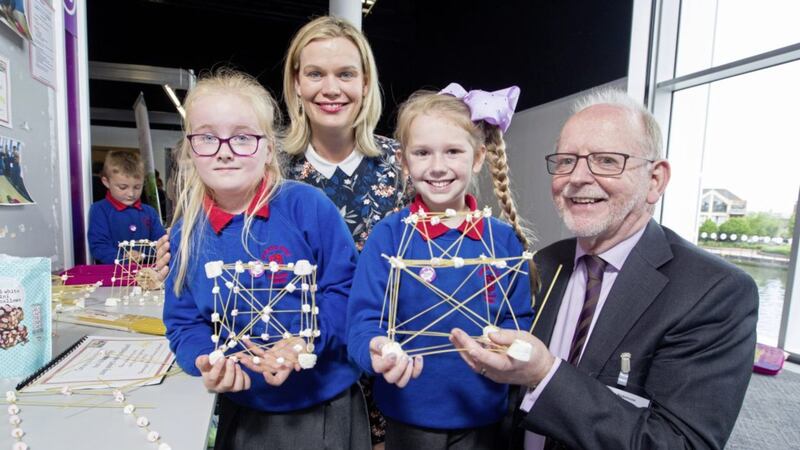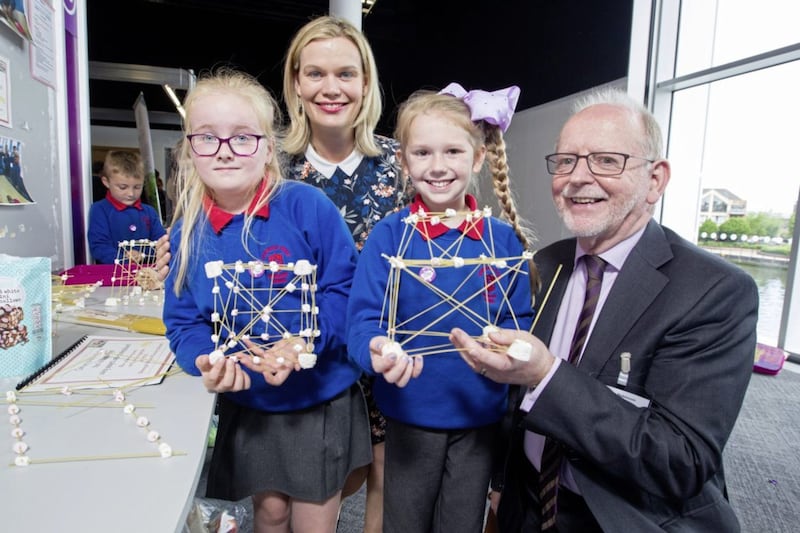Michael Duffy, CEO at the RDS examines whether we are doing enough in early learning years to challenge stereotypes before they establish themselves
::
ALL children are scientists; naturally curious and open to new things. Their, at times never-ending, torrent of questions about the world around them is what helps them enquire, learn and explore. Yet when it comes to science in the classroom, research shows that girls from as early as age five think they are not as good as boys.
Are we simply tackling this too late to affect a change?
International research, by PISA and many others, shows that from an early education stage, girls are more likely to see themselves as less capable in science and maths; and that young teenage girls are less likely to see themselves in a stem-related career or degree course.
According to Department of Economy figures, 57 per cent of all Northern Irish third-level graduates are female, yet only 23 per cent of ICT graduates are and only 15 per cent of engineering and technology graduates are. While there remains a dearth of stem workers and graduates in general, this is particularly acute when it comes to female stem graduates.
There is a body of international research suggesting that parents, and other adults of responsibility, unknowingly change how they interact with different sexes and this extends to stem topics. On top of this, recent polling in the Republic of Ireland suggested that one third of parents and teachers perceive stem subjects as more closely fitting with male brains, personalities and hobbies.
Further international research into stem education has shown that early educational intervention can capitalise upon the natural curiosity found in young children. Many existing initiatives are directed towards teenage years, which can be very beneficial, but international pedagogical research repeatedly demonstrates that earlier intervention has better results.
By harnessing the natural openness to stem during their early educational years, we can help open the doors of scientific thinking for the rest of their lives. And while this is important for the pipeline of stem graduates required to populate the jobs of the future, it is actually just as important that we have a scientifically-literate society in an age where technological advancements are increasingly changing our lives.
One known remedy is to highlight female role models in stem. Having a tangible female role model can make a real difference. This ambassador idea has proven successful with students in England, opening up new areas of potential study for them. It can also open up career possibilities that neither students nor their parents were not previously aware of.
There is already great work happening in this area in Northern Ireland, with the Matrix NI due to publish their latest work on gender and stem shortly. The RDS is playing our part in this too. This year the RDS Primary Science Fair at Belfast's Waterfront, just in its second year, will double in capacity, equipping almost 2,000 primary school children with fundamental stem skills.
The structure of the fair ensures that the entire class gets involved, boys and girls working together and on an equal footing. Though non-competitive, each project in the RDS Primary Science Fair is assessed by a judge. The majority of judges hold prominent positions within stem-related industries or academia. Each year at least 50 per cent of our judges are women, thus providing each child with tangible stem role models, similar to that which has proven successful in the England.
But it will take a sizeable effort to make significant change. As a society we need to encourage much greater numbers of young students to take an interest in stem. Greater prominence needs to be given to women working in stem areas, and crucially this needs to be directed at primary school-aged children, where many negative stereotypes are reinforced and take root.
Recognised continuous professional development stem courses for primary school teachers need to be rolled out, on a similar basis as for other professions. Industry needs to take an active role on multiple levels to lead and support. To make a long-lasting change we need to act early in the education cycle.
All children are natural scientists, but we have to make sure they all have the equal opportunity to realise this.


